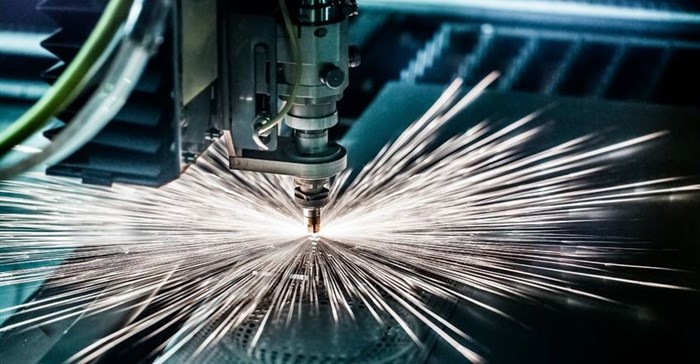
Top stories






More news


Marketing & Media
Ads are coming to AI. Does that really have to be such a bad thing?














Manufacturing originated from steam, then progressed to mechanised machines and evolved to the development of electricity, the assembly line and the introduction of mass production. The 3rd era of manufacturing introduced computers and the start of automation on assembly lines. Now we enter a ‘Smart Future’ of Industry 4.0, whereby computers and automation come together in a new and innovative way to control robotics with very little human intervention, ultimately creating the ‘smart factory’.
Industry 4.0 has already begun to transform products and how companies operate and manage production in this unique environment. It is a giant leap for manufacturing innovation, characterised by ‘smart devices’ that can take control of machines on the shop floor, communicating autonomously ‘device-to-device’ to manage manufacturing operations and distribution. Through the monitoring of productivity and efficiency of employees, machinery and business processes, the company management is now able to access important information in real time. The entire manufacturing value chain can be monitored, from concept to completion and beyond.
The fusion of Big Data, the Internet of Things, and advanced analytics is providing manufacturers with unprecedented insights – insights into manufacturing performance, customer behaviour, and new product development as never seen before.
Another critical benefit this new technology delivers is a consistent feedback flow between companies and their customers in which products could be improved – or highly influenced – by the end-user, transforming how products are designed and produced. Industry 4.0 harnesses uncertainties and in its place, removes assumptions and risky forecasts, enabling a relevant level of actual knowledge and an new found level of insight.
“The impact of these shifts is that there is a need for companies to manage the transition by up-skilling their workforce to utilise these technologies effectively and act upon that knowledge and insights. Importantly, these changes will create opportunities for the youth who are a lot more comfortable with technology and it will give them opportunities to enter the workplace,” says Saul Levin the director of the Trade and Industrial Policy Strategies (TIPS), a not-for-profit economic research organisation.
Manufacturers need to be prepared to translate that knowledge and awareness into concrete investments and real projects. For that to happen, manufacturers need to be convinced that Industry 4.0 will make a significant difference to their businesses, delivering a return on their investment.
Compared to the rest of the world, the current adoption and impact of industry 4.0 on the African continent remains low. However, it is a topic that is increasingly being acknowledged and discussed by industry leaders and policy makers, largely because of the impact smart technologies can make at a socio-economic level.
The biggest challenges in Africa/South Africa remain connectivity and accessibility, however, companies that have embraced IoT have already started to become more globally competitive as they streamline operations, increase productivity and reduce costly wastage. Industry 4.0 will have a strong impact in the coming years on Africa/South Africa in general, especially the South African manufacturing industry.
It remains a key topic in South Africa and the Manufacturing Indaba 2017 places a weighted value on the subject. Being an important focus, there will be a dedicated session focussing on the implementation of Industry 4.0 and its implications for South African manufacturers. The 4th annual Manufacturing Indaba will be hosted at Emperors Palace in the City of Ekurhuleni from 27-28 June 2017.